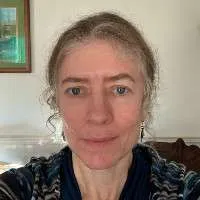Meet the Researcher: Jennifer Cann, Director of Pathology, Virscio
DDW’s Megan Thomas speaks to Jennifer Cann, Director of Pathology at Virscio, a company solving human health challenges through biomedical research.
MT: Can you provide a top line summary of your research?
JC: As Virscio’s Director of Pathology, I provide exploratory and translational pathology support for drug development research at all stages of the pipeline from pre-clinical through life cycle management, including clinical trial biopsy analysis to demonstrate pharmacodynamic effects within the target tissue.
My therapeutic areas of expertise include cardiovascular and metabolic diseases, including diabetes; non-alcoholic fatty liver (NAFL) and nonalcoholic steatohepatitis (NASH); respiratory and autoimmune diseases; immunoncology; ocular and neuropathology; and infectious diseases.
I have specific expertise in tissue-based method of action (MoA) and target expression analyses as well as biomarker development, including optimisation of mono- and multiplex IHC/IF/ISH assays, and their corresponding computer-assisted image analysis solutions using software programmes.
My background is that I’m a veterinary pathologist with a PhD in Molecular and Cellular Pathobiology, and more than 18 years of experience as an anatomic pathologist in academic and biopharmaceutical settings. My veterinary and comparative pathology training has provided me with a broad knowledge base that spans many species, including non-human primates and other laboratory animal models, as well as their corresponding human diseases.
MT: Where do you think the biggest opportunities are in this field?
JC: AI-driven assessments of histopathology and microscope slides stained with various stains are the way of the future. Harnessing the power of AI for routine screening and mundane tasks will be helpful. It will save time for the pathologist, eliminating a bottleneck in the workflow. This starts with having a strong digital pathology foundation.
We recently adopted Proscia’s Concentriq for Research enterprise pathology platform to digitise our routine workflows and capitalise on the opportunity that AI is increasingly delivering. Letting the AI help examine regular tissues means we will see reduced cost and time, and we will be able to focus our expertise on the slides that need more in-depth analysis.
MT: What industry-wide innovation or breakthrough holds the potential to be most impactful to your research?
JC: I’m excited to see how multidimensional platforms further transform the industry. Using new technologies helps us conduct histopathology in a three-dimensional space, and spatial transciptomomics allows us to see and examine mRNA transcripts in a whole new way. Both are poised to alter how we do histopathologic research in the years to come.
MT: What’s been the highlight of your career so far?
JC: Working with biopsy samples from patients enrolled in clinical trials to generate tissue pharmacodynamic data for drug efficacy testing was a real highlight because it benefitted the patient population directly. In the pre-clinical space, we work with many projects that never make it to clinical trials. As a result, there’s little direct benefit to the patient population, but when you are examining biopsies before and after treatment, that is directly relevant to whether the drug is going to be successful and go to market or not.
MT: What has been the best piece of career advice you have received?
JC: Two of my favourite pieces of career advice are ‘Don’t make work out of work’, and ‘Work hard, be nice’. Someone told me, ‘Don’t make work out of work’, when I was very young. It applies to most everything in life. If you make a task more onerous than it needs to be, then that’s on you.
MT: What advice would you offer someone looking to follow in your footsteps?
JC: I would tell them to get comfortable with being uncomfortable, and ask a lot of questions and scrutinise the answers. I think these are both critical things to keep in mind if you are going to try to be the best at whatever you do. They speak to the very heart of being a scientist. Ask lots of questions, and be curious about the unknown.
MT: If you could make everyone read one book, article or academic paper, what would it be and why?
JC: I would make everyone read The Four Agreements by Don Miguel Ruiz. The book is filled with sensible, actionable, and accessible advice that can benefit anyone regardless of their age, stage in life, race, gender, or profession.
SOURCE: Drug Discovery World



































